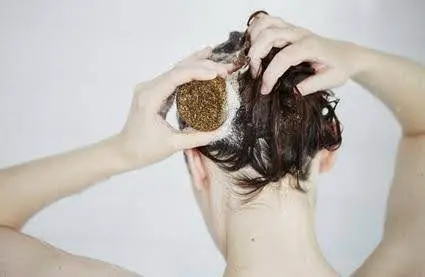Hair loss is often a significant fear when facing chemotherapy treatment. We understand that it is not easy to cope with, both for the patient and for those accompanying the process. It is important to surround yourself with a good team of experts who can help you face the disease in the best possible way.
The likelihood of losing your hair is very high. Talk to your doctors about any fears or concerns you may have regarding hair loss. Ask how you can prepare. Planning for hair loss can help significantly, and psychological support throughout the process is essential to mastering the fight against cancer.
Now, let’s address some of the most common questions:
What causes hair loss from chemotherapy?
Chemotherapy involves the use of strong medications that attack cancer cells. These medications also damage other rapidly reproducing cells in the body, including those in hair roots.
Chemotherapy can cause hair loss all over the body, not just on the scalp. This includes eyelashes, eyebrows, underarm hair, pubic hair, etc. The speed or degree of hair loss can vary depending on the medication or dosage. The effect can range from hair thinning to complete hair loss.
When does hair loss start during chemotherapy?
Hair loss usually begins 2 to 4 weeks after starting treatment. It may fall out very quickly or gradually. You might notice hair on your pillow, brush, comb, sink, or shower. You may also feel scalp sensitivity. Hair loss typically continues for a few weeks after completing treatment.
Does hair grow back after treatment?
The answer is YES. Hair can start to grow back 3 to 6 months after completing your treatment. The new hair may be somewhat different and usually returns to normal over time. It might have a different texture or color, be curlier than before, or appear gray until the cells controlling hair pigment start working again.
Can hair loss from chemotherapy be prevented?
There is no treatment that guarantees you won’t lose your hair during or after chemotherapy. Several treatments have been studied to prevent hair loss, but none have proven to be completely effective.
Studies on scalp cooling and other forms of scalp hypothermia have shown some degree of success for most people who tried them. Scalp hypothermia involves making the scalp very cold. During chemotherapy infusions, a tight cap cooled by cold liquid can be placed on your head. The cold helps slow blood flow to the scalp, making it less likely for chemotherapy drugs to affect your hair.
However, using scalp hypothermia also carries a very slight risk of cancer spreading to the scalp. This is because this area does not receive the same dose of chemotherapy as the rest of your body. People who tried scalp hypothermia reported feeling very cold or experiencing headaches, making it a less popular recommendation. Some studies showed that scalp cooling might not work well on curly hair, as the hair can prevent the cap from imparting enough cold to the scalp.
Are there medications to help hair regrowth after chemotherapy?
Minoxidil (Rogaine) is a medication used for hair loss. It is unlikely that applying minoxidil to the scalp before and during chemotherapy will prevent hair loss. However, some research shows it may speed up hair regrowth. More studies are needed to understand if minoxidil is effective after cancer treatment.
After addressing the above questions, it is important to highlight that hair loss generally cannot be prevented. However, it can be managed. Consider the following actions that might help during the process:

Before Chemotherapy
- Be gentle with your hair. Treat it naturally. Avoid bleaching, dyeing, or straightening your hair, as this can weaken it. Avoid blow dryers or flat irons. Strengthening your hair now may increase the chances of it staying longer during treatment.
- Consider cutting it. Short hair tends to look fuller than long hair. When it falls out, it won’t be as noticeable if it’s short. Additionally, cutting it might help you transition better to total hair loss.
- Plan a way to cover your head. This is the time to start thinking about scarves, wigs, or other head coverings. Using an accessory to hide hair loss is your decision, but planning it now is easier than later. Seeking professional help to cope with significant life changes is essential for doing so calmly and confidently.
During Chemotherapy
- Care for your hair as you would a baby’s. Use a soft brush. Wash your hair only as needed. Consider using a gentle shampoo.
- Consider shaving your head. Some people experience itching, sensitivity, and scalp irritation during treatments and hair loss. Shaving your head can reduce irritation and prevent prolonged hair loss.
- Protect your scalp. If your head will be exposed to the sun or cold air, protect it with sunscreen or a head covering. You may feel scalp sensitivity during treatment. Extreme cold or heat can easily irritate it.
After Chemotherapy
- Continue gentle care. When your hair starts to grow back, it will be especially fragile. It can be easily damaged by styling products and heat devices. Avoid dyeing, straightening, or bleaching your new hair until it strengthens.
- Try to be patient. The process may be slow, and it might not look normal immediately. However, it will grow over time. Your body also takes time to repair the damage caused by cancer treatment.

At LIV Comprehensive Oncology, you will find a great team of specialists ready to support you in every detail of your process. We know how important it is to face the battle together.


